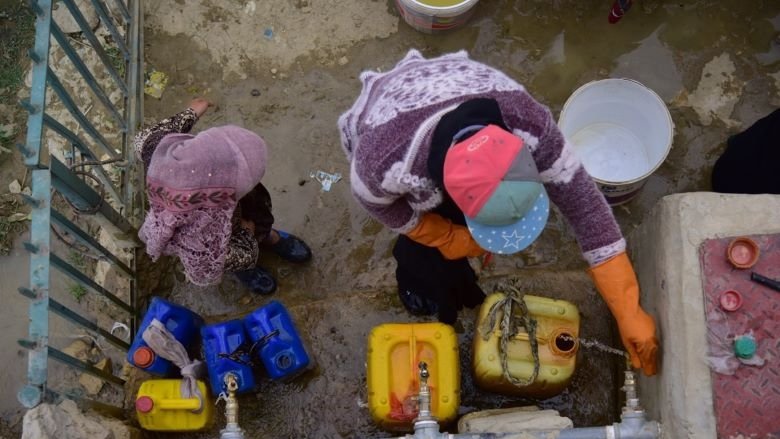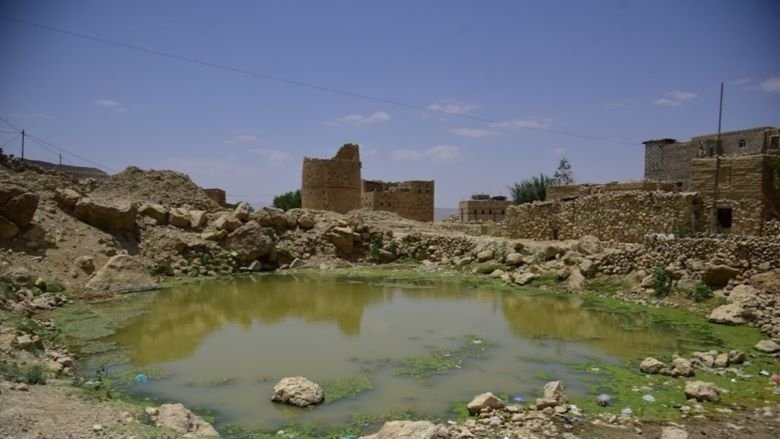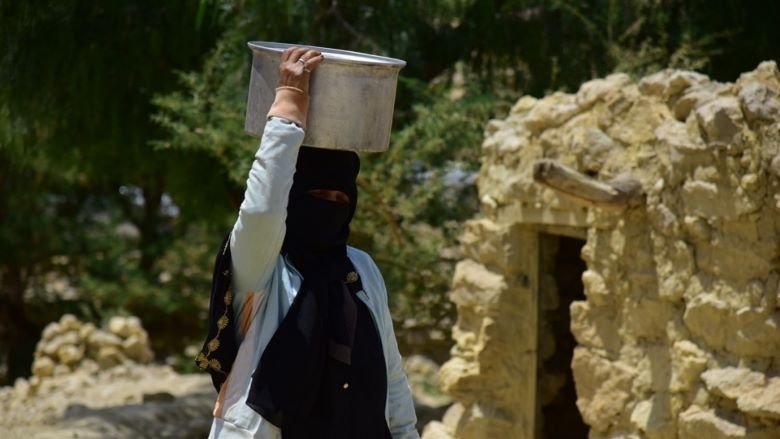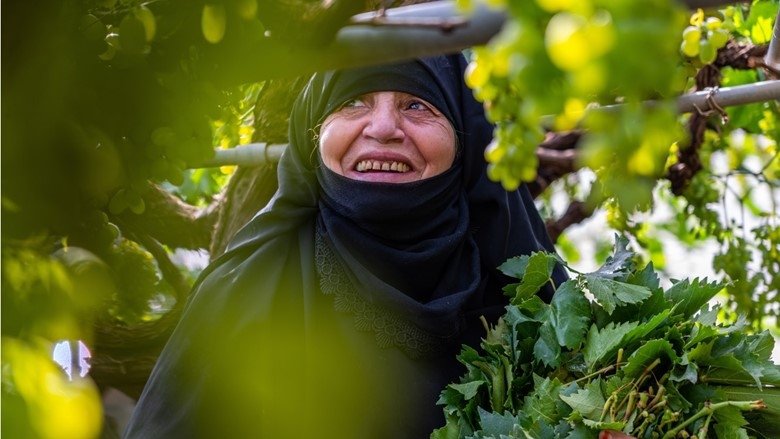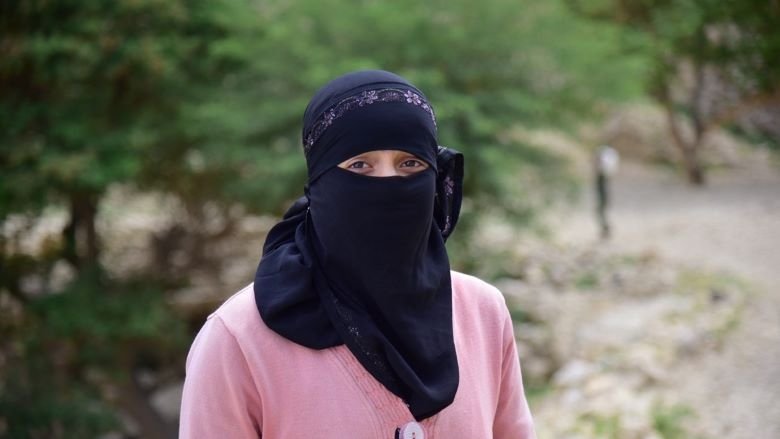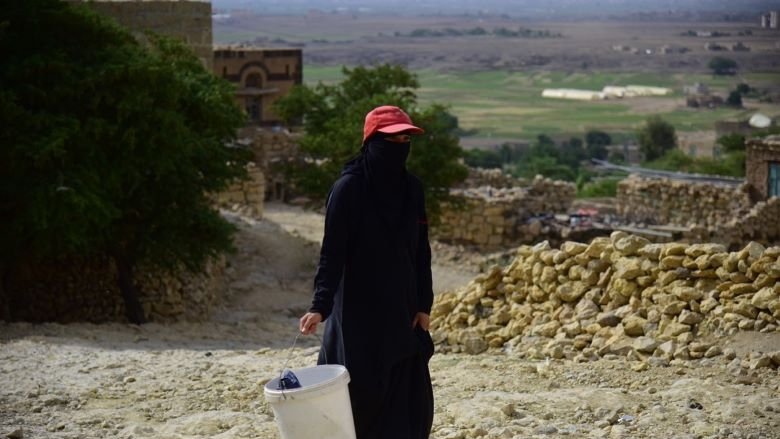In the Yemeni village of Quhal, in Amran governorate in northern Yemen, the main source of water used to be the old rainwater ponds that filled during the summer. This water fed crops and animals and was used to clean homes and wash clothes, and provided drinking water. But it did not cover all the village’s needs and people had to resort to buying water from delivery trucks. In rural Yemen the task of fetching water falls largely on women and girls. It can involve covering long distances to collect water that’s often dirty and carrying small quantities that can’t meet farming needs.
Katebah Sayyad, a 60-year-old woman in Quhal, describes fetching water as “an exhausting task for people, especially women.” The cost of a delivery truck of water (then at about YR30,000 or US$120) was “an exorbitant amount that many people cannot afford.”
The World Bank’s Emergency Crisis Response Project has sought to address this situation by providing closer access to clean water, a life changer for rural populations of Quhal and other villages. Funded by the International Development Association and implemented by the United Nations Development Programme in partnership with the Social Fund for Development and the Public Works Project, the project has helped build reservoirs and water harvesting cisterns.
The dam and water tank subprojects have provided us with clean drinking water. The two subprojects have improved the level of public health and reduced cases of cholera and other waterborne diseases,” Katebah says.
Across Yemen, the project has built 1,279 public reservoirs and 30,686 household rainwater harvesting cisterns, supplying nearly 900,000 cubic meters of water. In a water-scarce country like Yemen, these systems address thirst, hygiene-related diseases, poor sanitation, and they protect rural women and girls who carry the burden of fetching water.
And with better water management, comes better agriculture. The project is also working to increase food production, in part by improving agricultural techniques. It has so far helped restore more than 24,000 hectares of farmland and provided 7,720 farmers with modern farming equipment and training to improve productivity.
Many of the farmers are women. “We women help each other on our farms. When I want to take care of my farm, I call my fellow women to help me. The next day, I go to help one of them. That is how we’ve always done things, and we will continue to do so,” says another 60-year-old farmer, Hailah Al-Koul from Bani Hushaish in Sanaa governorate, an area known for its grapes.
Hailah has been growing grapes for over 50 years on the farm she inherited from her parents, and which she plans to leave to her children. Last year, heavy rainfalls, aphids, fruit flies, and mildew hit the crops hard. As a result, the family made no profit. Hailah struggled to pay workers and buy fuel.
She has since received support from the Emergency Crisis Response Project to help rehabilitate her land and improve her crop yields and income. Along with 70 grape farmers like her, Hailah was provided with trellises, which ensure exposure to sunlight and good airflow, as well as hand tools to till the soil.
A brighter future for rural women
While women in rural areas of Yemen face many hardships, they have many success stories, too. Al-Anoud Dahan, a 22-year-old from Qahal is one such example. Her determination has enabled her to overcome difficult circumstances and continue her education despite having many responsibilities on her family’s farm, including grazing animals and fetching water.
“I live in a rural environment, and life is not easy here,” she says. “I perform exhausting chores every day, but they have become part of my daily routine.” Her hard work has inspired her to be ambitious. “I want to pursue my education and get a university degree. I want to make a drastic change in my life and be able to serve my community.”
